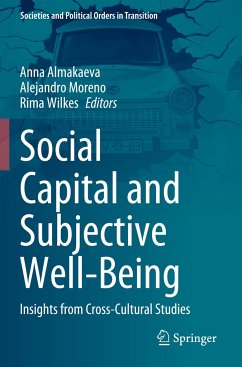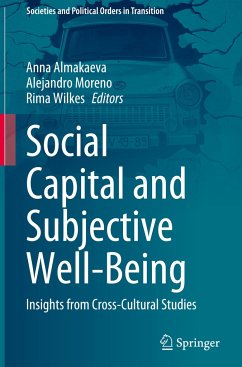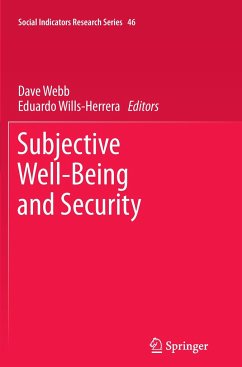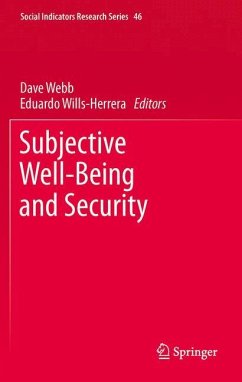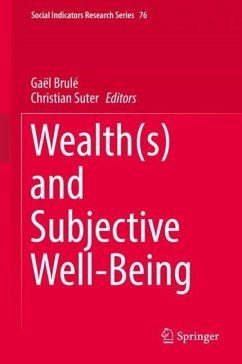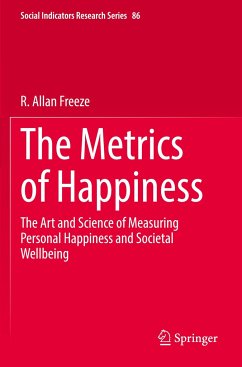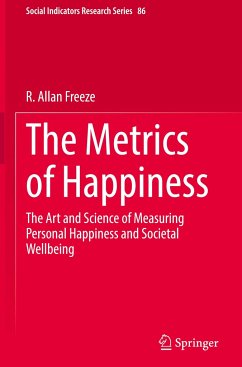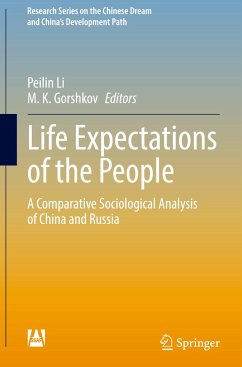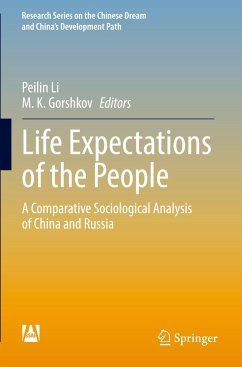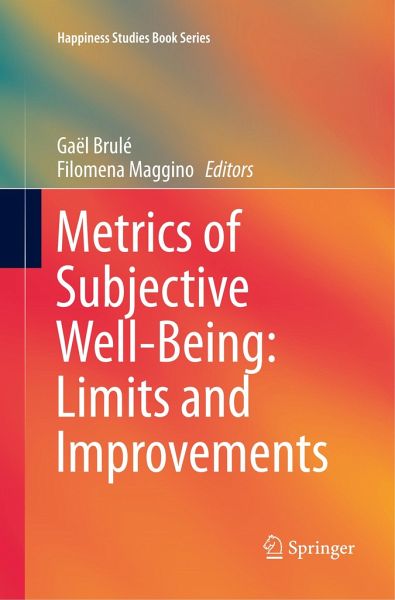
Metrics of Subjective Well-Being: Limits and Improvements
Versandkostenfrei!
Versandfertig in 6-10 Tagen
83,99 €
inkl. MwSt.

PAYBACK Punkte
42 °P sammeln!
This volume analyses the quantification of the effect of factors measuring subjective well-being, and in particular on the metrics applied. With happiness studies flourishing over the last decades, both in number of publications as well as in their exposure, researchers working in this field are aware of potential weaknesses and pitfalls of these metrics. Contributors to this volume reflect on different factors influencing quantification, such as scale size, wording, language, biases, and cultural comparability in order to raise awareness on the tools and on their conditions of use.



